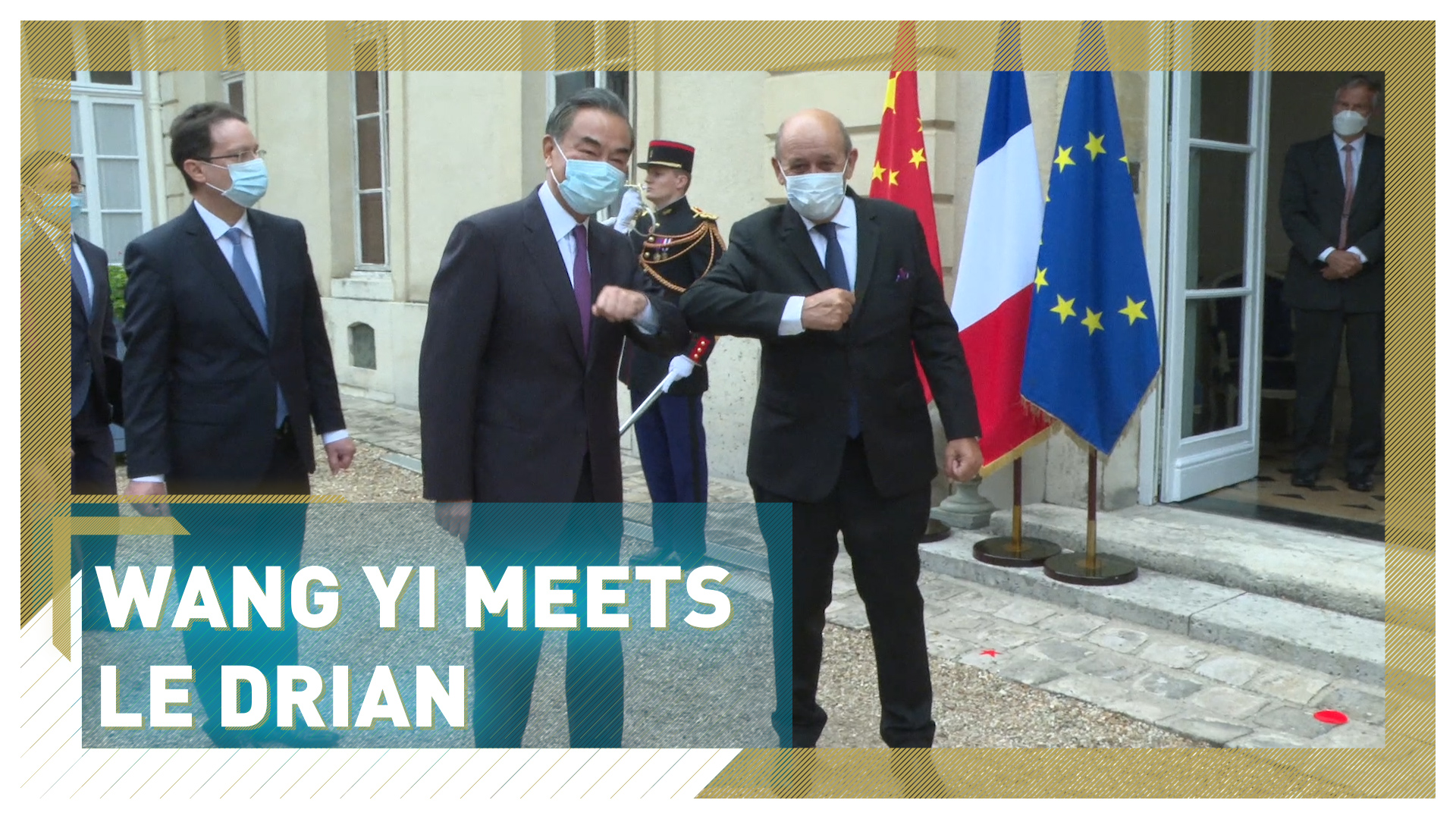
Laurent Fabius pictured with Wang Yi in May, met with the Chinese diplomat on Saturday to discuss trade and politics. Goh Chai Hin-Pool/Getty Images
Laurent Fabius pictured with Wang Yi in May, met with the Chinese diplomat on Saturday to discuss trade and politics. Goh Chai Hin-Pool/Getty Images
China and France should show the way on multilateralism, said former-French prime minister Laurent Fabius, after a meeting with Chinese Foreign Minister Wang Yi on Saturday.
Wang also emphasised the importance of multilateralism as the world tackles coronavirus.
"It's extremely important that we set an example of multilateralism and of excellent relations in a balanced world," said Fabius, prime minister of France from 1984 to 1986, and who is now the president of the country's constitutional council.
China's top diplomat met with Fabius at the constitutional council, in Paris, the latest stop on his five-country European tour. The two spoke about bilateral relations and areas where the countries could more closely cooperate.
In case you missed it:
• The world's largest nuclear fusion experiment: RAZOR full episode
• China-U.S. trade conversation went smoothly, especially in agriculture, financial areas, sources say
"There are many areas where cooperation is necessary: the economy, the environment, international relations in general," said Fabius, as he headed into the meeting.
"In my opinion, China, France and Europe are balancing powers. There are a lot of risks, obviously we'll see the results of the U.S. elections. It's important not just for the U.S., but the rest of the world but in any case, we need Europe and China to cooperate in order to have a harmonious and balanced world."
01:24

Wang feels that provision of COVID-19 vaccines for vulnerable countries is an example of how EU countries and China need to work together.
"China, France and the EU should enhance cooperation to contain the pandemic, uphold multilateralism," said Wang.
"They should make sure African countries have access to and can afford coronavirus vaccines."
Wang also added China's commitment to the Paris Climate Agreement and "cooperation to help the world economy recover" from coronavirus.

Wang Yi greets Norway's Prime Minister Erna Solberg and Foreign Minister Ine Eriksen Soreide on his diplomatic tour. Heiko Junge/NTB Scanpix/AFP
Wang Yi greets Norway's Prime Minister Erna Solberg and Foreign Minister Ine Eriksen Soreide on his diplomatic tour. Heiko Junge/NTB Scanpix/AFP
Wang Yi Tours Europe
Wang met with French President Emmanuel Macron on Friday, where talks focused on investment, trade and coronavirus. Both sides said they stand ready to promote bilateral cooperation.
In the short-term, the focus is on developing a coronavirus vaccine and ensuring it's affordable and accessible to everyone. In May, Chinese President Xi Jinping pledged to make a Chinese-developed vaccine "a global public good", something Macron said he appreciated.
Wang was also scheduled to meet with his French counterpart Jean Yves le Drian, where an agricultural agreement was expected to be signed.
Paris is the fourth stop on Wang's European tour. He's already paid visits to Italy, the Netherlands, and Norway and he will travel to Germany on Sunday.
In case you missed it:
• EU warns Turkey of sanctions as east Mediterranean crisis worsens
• Shopping became "highlight of the day" for consumers during lockdown
The tour, which is Wang's first overseas trip since the coronavirus outbreak began, is an opportunity to jumpstart conversations around trade, bilateral corporation and investment, which have largely been put on a backburner as world leaders focused on fighting the pandemic.
The trip is also a chance to ease tensions between China and Europe that have arisen during the pandemic.
The EU has expressed "grave concerns" over the National Security Law in Hong Kong, which Beijing says closes a security loophole. A number of European leaders are also under pressure, particularly from the U.S., to ban Chinese technology from their 5G networks. France laid the groundwork to eliminate Huawei from its 5G plans last month.
There are sensitive issues to navigate, but strengthening the relationship is a top priority for both China and the EU.